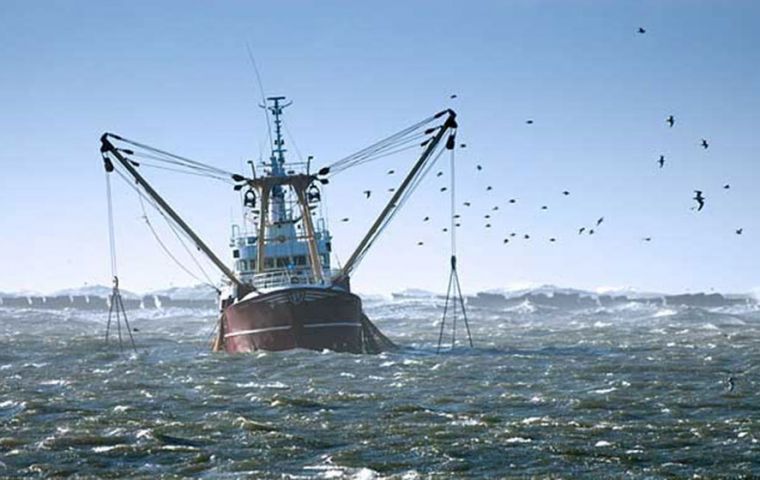MercoPress. South Atlantic News Agency
High seas fisheries not as important as believed, says joint scientific report
 The study paired a global database of marine catches developed by researchers at the University of British Columbia with a seafood trade database from FAO
The study paired a global database of marine catches developed by researchers at the University of British Columbia with a seafood trade database from FAO According to a recent study undertaken by a team of fisheries and social scientists from Dalhousie University, New York University, and National Geographic, fishing fleets operating outside of national waters contribute less than 3% to the world's seafood supply.
This finding goes against the common assertion that high seas fisheries are important for food security.
The study paired a global database of marine catches developed by researchers at the University of British Columbia with a seafood trade database maintained by the United Nations Food and Agriculture Organization for the analysis and considered the amount of fish and marine invertebrates produced by marine capture fisheries, as well as freshwater fisheries, and aquaculture.
In addition to the low volume, researchers also found that most of the high seas catch is destined for upscale markets in the EU, the US, and Asia.
“I think many people have the misconception that because the area is so large, the high seas must be contributing a massive supply of food to the world, but that's just not the case”, said lead author Laurenne Schiller, Interdisciplinary Studies Ph.D. student at Dalhousie University.
“Only a handful of countries are fishing in the high seas and the fish they catch are not feeding those most in need”. (FIS)




Top Comments
Disclaimer & comment rulesCommenting for this story is now closed.
If you have a Facebook account, become a fan and comment on our Facebook Page!